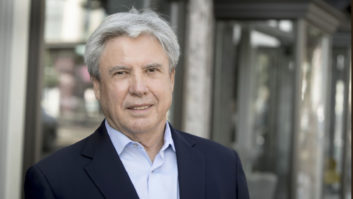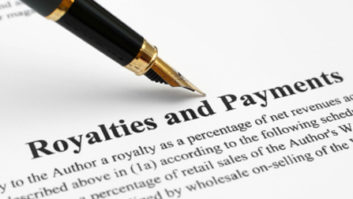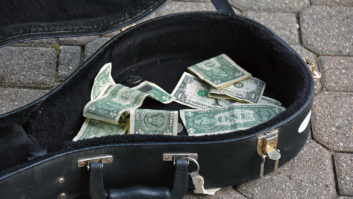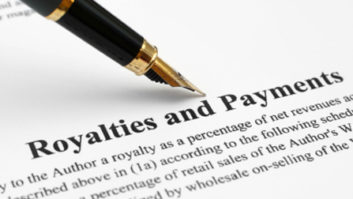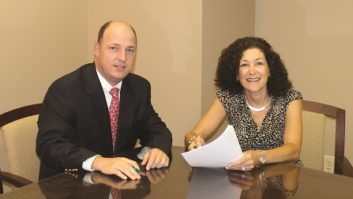Several letters below are in response to Jennifer Bendall’s commentary “Royalty Is a Simple Issue of Fairness” in the Sept. 1 issue.
Revenue Split
In her Sept. 1 commentary about performance royalties, Ms. Bendall is absolutely right, “Everyone deserves to be paid for their work.”
Small stations like ours work hard to promote music, both new and old; but to date, we’ve never received a dime from the labels or performers who profit from our efforts. And even now, when some are asking for it via musicFirst, I’ve never once had an artist, performer or even a label representative personally ask for payment when they sent or brought a CD by for me to play.
So let me get this right: I take it and play it, they sell CDs, I sell spots and I’m not being fair?
OK, Ms. Bendall, let’s wipe the slate clean. Here’s a suggestion: I’ll stop selling advertising and help promote your performer’s music, T-shirts, concerts, events, posters, watches, movies, etc. We can split the revenues 50-50.
That sounds fair to me.
David Chenault
Operations Manager
KMOO(FM), Hightower Radio Inc.
Mineola, Texas
What’s Fair About That?
Ms. Bendall, I never saw in your article where the word “label” was referred to. Could this have been an oversight or a deletion for cause?
You refer to fairness. I may have missed it but I do not see where more costs being brought to the radio station owners for labels’ profits is fair.
You also stated, “Nor does it come down too heavily on radio.” Could you explain “heavily”? I know this fee would put numerous stations out of business and a lot more going to “talk radio” because they cannot afford all the little fees placed upon them.
My breakdown is a little different than yours. Should this fee pass, a radio station owner who makes, let’s say, $101,000 a year pays 26 percent for writers’ royalties, 5 percent for performance royalties for a total of 31 percent of gross revenue to start but that ends up going up a percentage every year or every renewal of contract(s) — for example government regulatory fees, BMI, ASCAP and SESAC.
What is fair about labels getting 50 percent, artists 45 percent and musicians 5 percent? Radio stations have to pay for equipment, maintenance and repairs, building and tower rent or payments, insurance, not to mention employee related fees, federal, state and local taxes, etc. etc. etc.
Show me where the fairness is. I, along with a lot of other radio station owners can’t see it.
The artists need to go after the labels they signed with. They are the ones making the big bucks, not the radio stations.
I also feel the record labels have ripped off artists for years; when you first start out in that business you would do just about anything to get your music out there, but in the long run end up on the short end — not from the radio stations who promote them for free, but the labels and some managers they chose to sign with.
Also, in case you haven’t noticed, our country is in a financial crisis and monies are tight all the way around. I feel the artists should go after the labels, not the people who are out there using their own resources to play their music, for free.
Serving the public interest is our first priority; we give up much commercial air time in times of crisis and offer local news, events, weather etc. If this royalty fee passes we would be forced to cut back on many public service projects due to lack of personnel as we will be forced to cut jobs.
Fairness is to remember that we pay the electric bill that runs the transmitters that provide artists the means and airways of playing their music. That includes information about artists and help packing concert halls they perform in. This results in lots of money for them, their agents and again their labels. Fairness?
Linda D. Jones
Owner
110 Broadcast Group
Seminole, Okla.
A New Revenue Model
Since she is the consummate paid lobbyist for the record labels/RIAA/musicFirst, we can understand why Jennifer Bendall stated plainly transparent “opinions” in her commentary.
If you don’t know by now, it’s all about the money to line the pockets of the record labels, and nothing else.
The time has come for radio stations to end the free ride and to start charging record labels to promote and popularize their product — as every other business is charged when radio advertises their product.
The change I urge the radio profession and government regulators to support is: “You Pay, We Play. You Don’t Pay, We Don’t Play.”
Establish a radio industry broadcast play royalty board. Establish a fee schedule for promotion and radio plays. Charge artists a fee, per play, per station, on every radio station it is played on.
The fee schedule: Artists with no record label: 1 cent per play. Indie record labels: 2 cents per play. Labels with revenues between $100 million and $500 million, 10 cents per play; labels with revenues over $500 million, negotiate fees of 11 to 50 cents per play.
Distribute play revenue evenly to all 13,000 U.S. radio stations
Tony Coloff
President/General Manager
KIOW(FM)
Forest City, Iowa
Change the Rules
I am amazed that broadcasters have not started to charge record companies and artists to air their recordings. Why aren’t we charging them?
If they want to change the rules, so should we.
Peggy L. Renschler
Assistant Secretary
Family Stations Inc.
Sacramento, Calif.
AM’s Relevance
I read with interest your story concerning the relevancy of AM radio (“Is AM Radio Still Relevant?” Sept. 1).
Let me be the first to say that AM is far more relevant than FM. I say this as an AM broadcaster and a person who loves radio.
I have a small 1 kW AM in the Baton Rouge market and I must say we do quite well.
We are not in debt, pay our bills and do what we do best, “Serve in the Public Interest.”
During Hurricanes Katrina and Gustav our little station ran circles around the corporate giants. We did this with old equipment, static in our signal and most of all with people, yes people.
I, like many AM operators, appreciate the new translator ruling but it is flawed terribly for many of us. There are no translators in the Baton Rouge market. They have been scarfed up by corporate radio and worst of all not being used as best we can see.
In my almost 30 years in the business I have found that most of the new giz-whizzes for radio borderline on junk. I cite AM stereo, HD Radio, new and improved EAS — and the list goes on. We do just fine in analog and I would be happy with Conelrad back.
I have always been amazed as to the faith the commission puts into the input it gets from corporate radio. These are the guys who are filing for bankruptcy, selling properties, firing people, fail in emergencies and don’t “serve in the public interest.”
I would love to have a translator but that doesn’t seem possible at the moment. A 10 or 15 watt translator would do wonders for us. We would cover our little city and that would be fine.
A fellow broadcaster asked why I wouldn’t want more power so as to cover Baton Rouge. The answer is simple; we don’t live in Baton Rouge. Baton Rouge, like most cities, already has about 10 too many radio stations.
We will continue to work hard to be a part of our community and pray that someday the commission will understand that there is more to radio than the corporate giants. We little guys are very valuable to the survival of radio. We do it right and get virtually no help from Washington.
Thank you for the thought-provoking story.
Harry Hoyler
General Manager
KKAY(AM)
White Castle, La.








